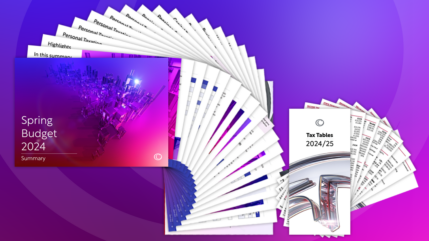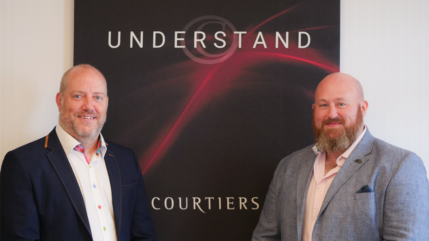“Knowledge is power”
Francis Bacon
In recent months we’ve had a university graduate toiling in the Corporate Team as part of a work-placement scheme. Given that it is now some 17 years since I graduated I took the opportunity to interrogate him on the topic of employee benefits, to see whether his financial knowledge is any better than mine was when I took my first faltering steps into the world of work. In the spirit of full disclosure, you should note that Tom is a bright and articulate 22 year old with a degree in Economics. The picture he painted, however, was troubling.
Adjusting the anglepoise lamp to shine directly on Tom’s face, I asked how he rated his knowledge of employee benefits, and what financial education he’d received at school. He readily confessed that he’d learned more about employee benefits in his first week at Courtiers than in his entire educational career, including his time at university. This surprised me. I’d assumed that there might be a module or two in his Economics course devoted to this sort of thing.
Furthermore, prior to coming to us, he was only very marginally aware of the government’s automatic enrolment initiative to get more people into workplace pensions. This was less of a surprise. Despite spending millions of pounds on television, newspaper and radio marketing campaigns, the government focussed its energies on ensuring that employers were aware of their duties. The expectation, one assumes, was that employees would become educated as and when they were enrolled. I cannot clearly recall any adverts targeting employees, although I do vaguely remember seeing the grinning face of Theo Paphitis on a poster somewhere, proclaiming himself to be ‘in’.
It seems that schools and colleges are still not investing much time in financial education and this should concern us all. How can we expect future generations to make good financial decisions if we make no effort to equip them with the tools required? Whilst personal, social, health and economic (PSHE) education does feature in the curriculum, the focus is very strongly on the ‘PSH’. Is it right that children leave school knowing how to avoid playground arguments but don’t know how to avoid bankruptcy?
If financial education doesn’t come from schools, where should it come from? In my experience people often take counsel from their parents, which is understandable, but it falls down when the parent’s own knowledge is sketchy or out of date. I’m all for the intergenerational passing of a savings ethic but specific planning tips can be dangerous if your information is 30 years out of date.
Financial education can also come from employers. Given that companies are often responsible for significant elements of employees’ finances (including areas like salary, retirement savings, health insurance, life insurance and even regular savings) it makes sense that information be delivered in the workplace. It can also be to an employer’s advantage to get the right messages across. According to research by the Institute for Employment Studies and the Chartered Institute of Personnel and Development, 25% of employees said that financial worries had affected their ability to work. That said, there is a huge gulf between firms that do financial education well and those that don’t and this can have a profound impact.
Moving the interrogation along, I asked Tom for five employee benefits he would actively seek out in a new employer. In order, his top five were; private medical insurance, dental cover, company events, corporate discounts and finally pensions. Given his situation in life, these choices make perfect sense. Why should he be worried about long-term illness or whether a lump sum would be payable on his death? He’d logically focussed on the benefits that would give him the greatest payback now (albeit with a steer towards the pension from his dad).
This really gave me pause for thought. All too often employers offer the benefits that they think employees would most value but it is easy for decision-makers to assume their own needs match those of their workforce, who might be at a very different stage of their financial life. The conclusion to draw is that employers must think very carefully about the diverse requirements of a diverse workforce. Better yet, engage with employees to canvas opinion and offer a menu of options if your budget permits. It will help you attract the right people and retain them.
If you’ve got this far, I’ll reward you with a story regarding the quote at the top of this piece. I recently read an online thread in which readers were asked to confess any amusing misunderstandings of youth. One read:
“When I was young my father said to me “Knowledge is power… Francis Bacon.” I understood it as ‘Knowledge is power, France is bacon.’ For more than a decade I wondered over the meaning of the second part and what was the surreal linkage between the two? If I said the quote to someone “Knowledge is power, France is bacon” they nodded knowingly. Or someone might say, “Knowledge is power” and I’d finish the quote “France is bacon” and they wouldn’t look at me as if I’d said something very odd… At 12 I didn’t have the confidence to press it further. I just accepted it as something I’d never understand. It wasn’t until years later I saw it written down that the penny dropped.
I’ve included this mainly because it amused me but also because a) it relates to education and b) it goes to show how easily things that we deem to be self-evident can be anything but, when approached from a different perspective.
If you need any help delivering the right message to your employees, speak to us.













